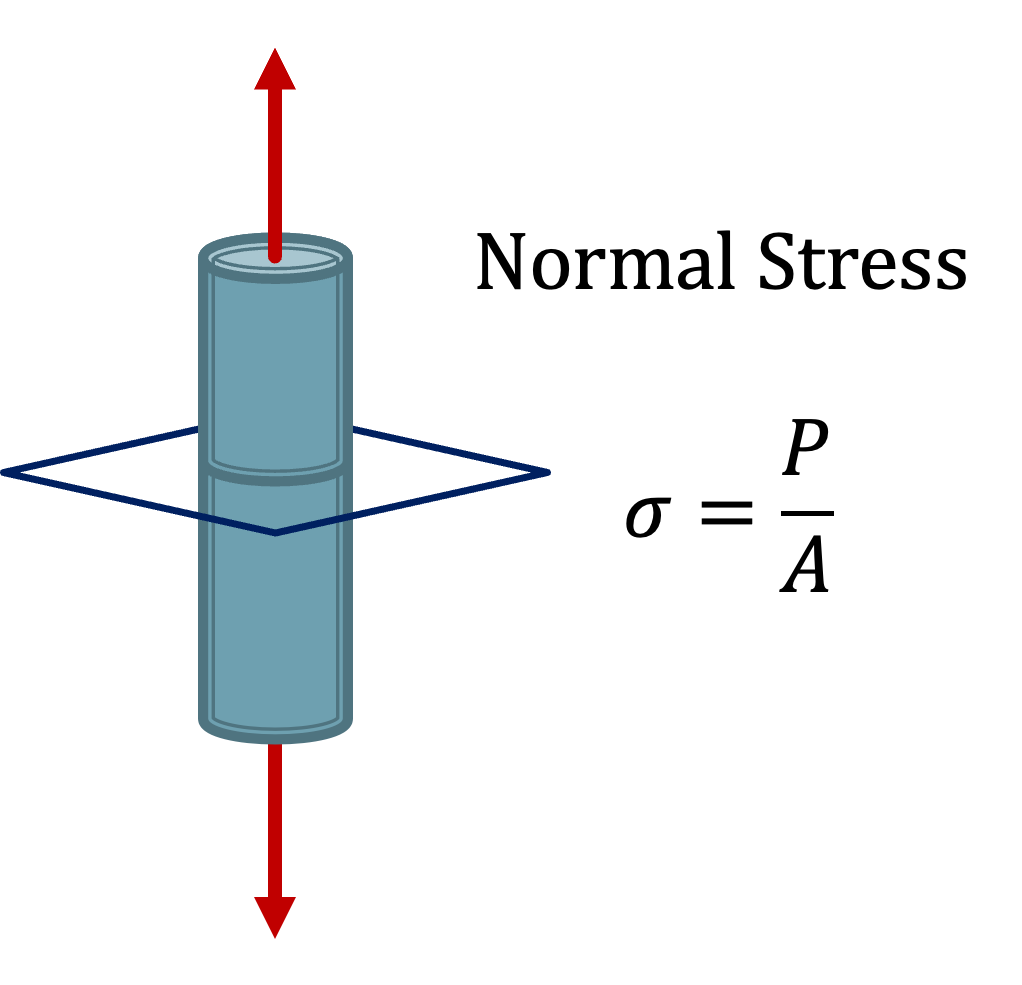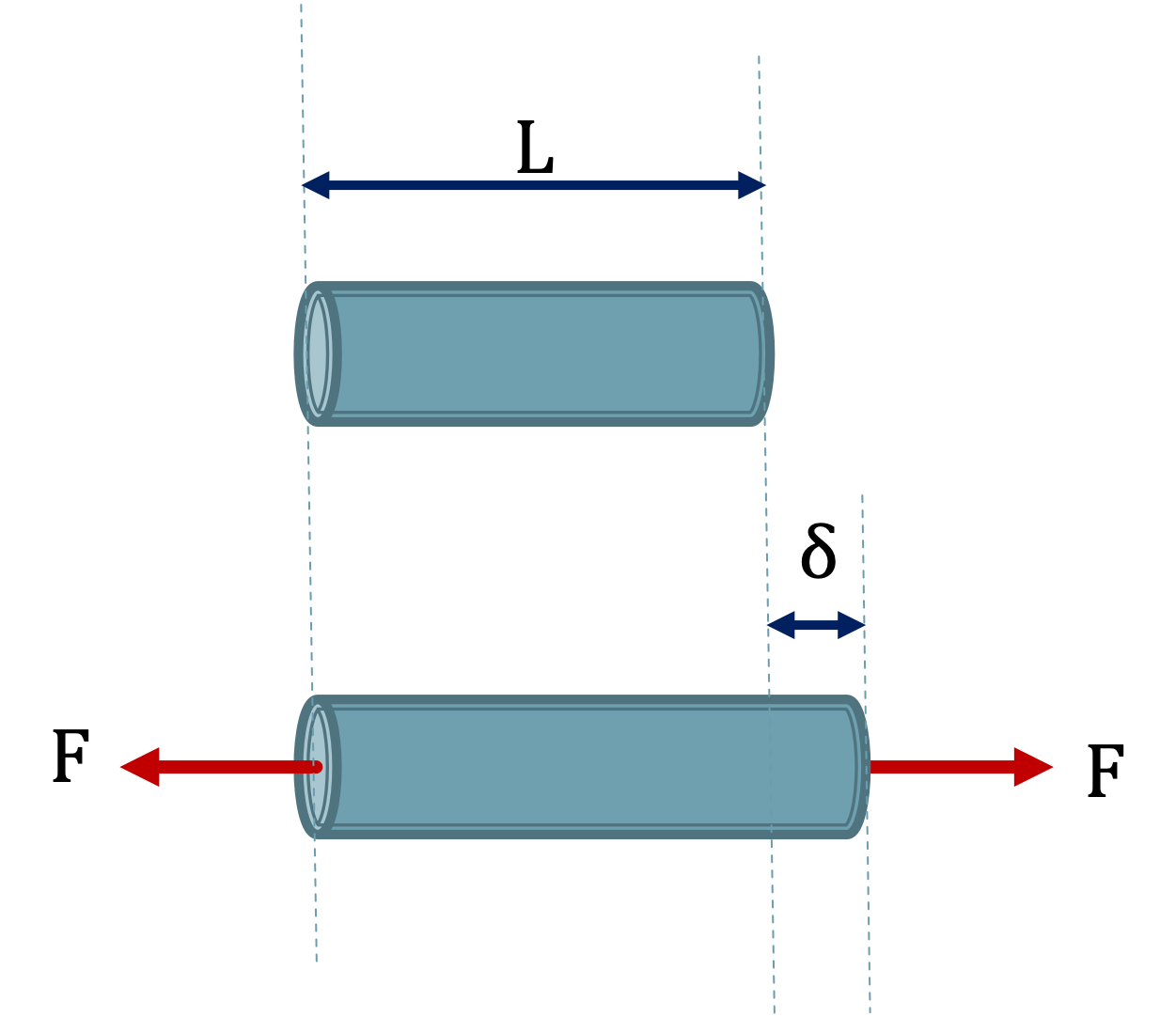7.4. Stress and Strain#
The concepts of stress and strain are foundational to modeling how materials deform under an applied load.
Stress#
Stress is the ratio of force to area (force divided by cross-sectional area). There is both normal stress (also called axial stress) and shear stress. For this introductory text we will primarily deal with normal stress.

Units of Stress#
USCS: \(psi\) (pounds per square inch) or \(ksi\) (\(kip\) per square inch, where 1 \(kip\) is 1000 \(lb_f\))
SI: Pa (pascals), or when appropriate kPa (kilo pascals) or MPa (mega pascals)
Compression and Tension#
For normal stress, we can look at members in either tension or compression.
The external forces that are responsible for creating stress, also create deformation (change in size or shape).
Members in tension will tend to lengthen.

Members in compression will tend to shorten.

Strain#
Looking at an axially loaded member in tension.

Unloaded the member has an initial length, \(L\).
When loaded the member axially deforms by length \(\delta\).
The normal strain in the member \(\epsilon\) is:
Units of Strain#
Strain has dimensions of length/length.
USCS: in/in
SI: m/m, or mm/mm
